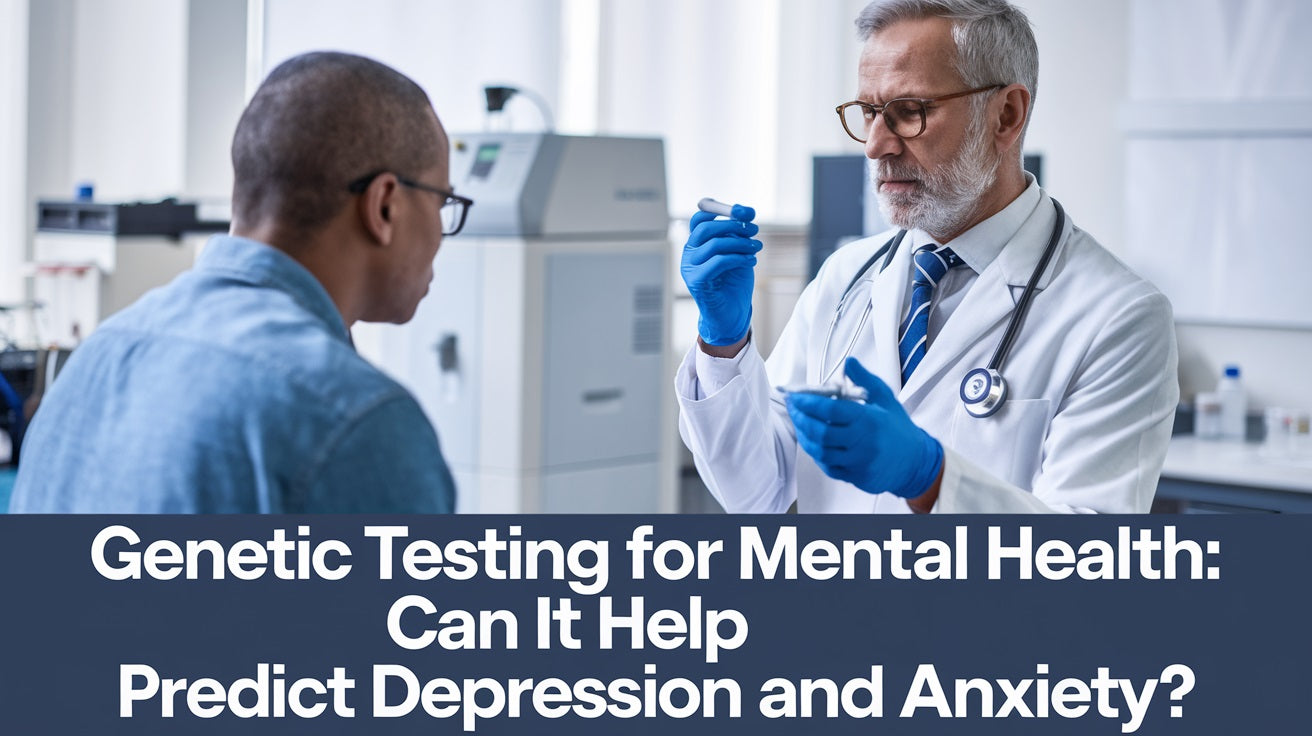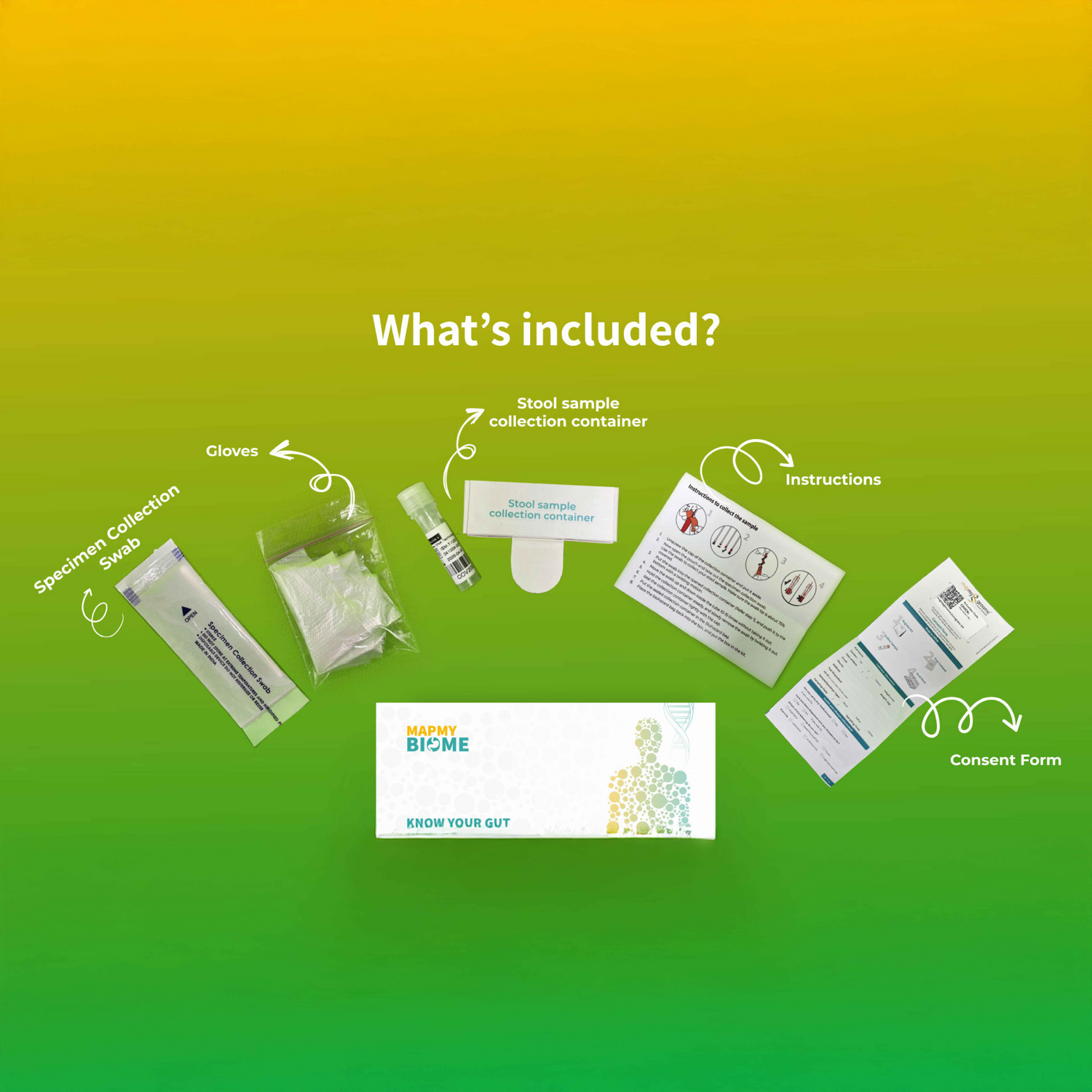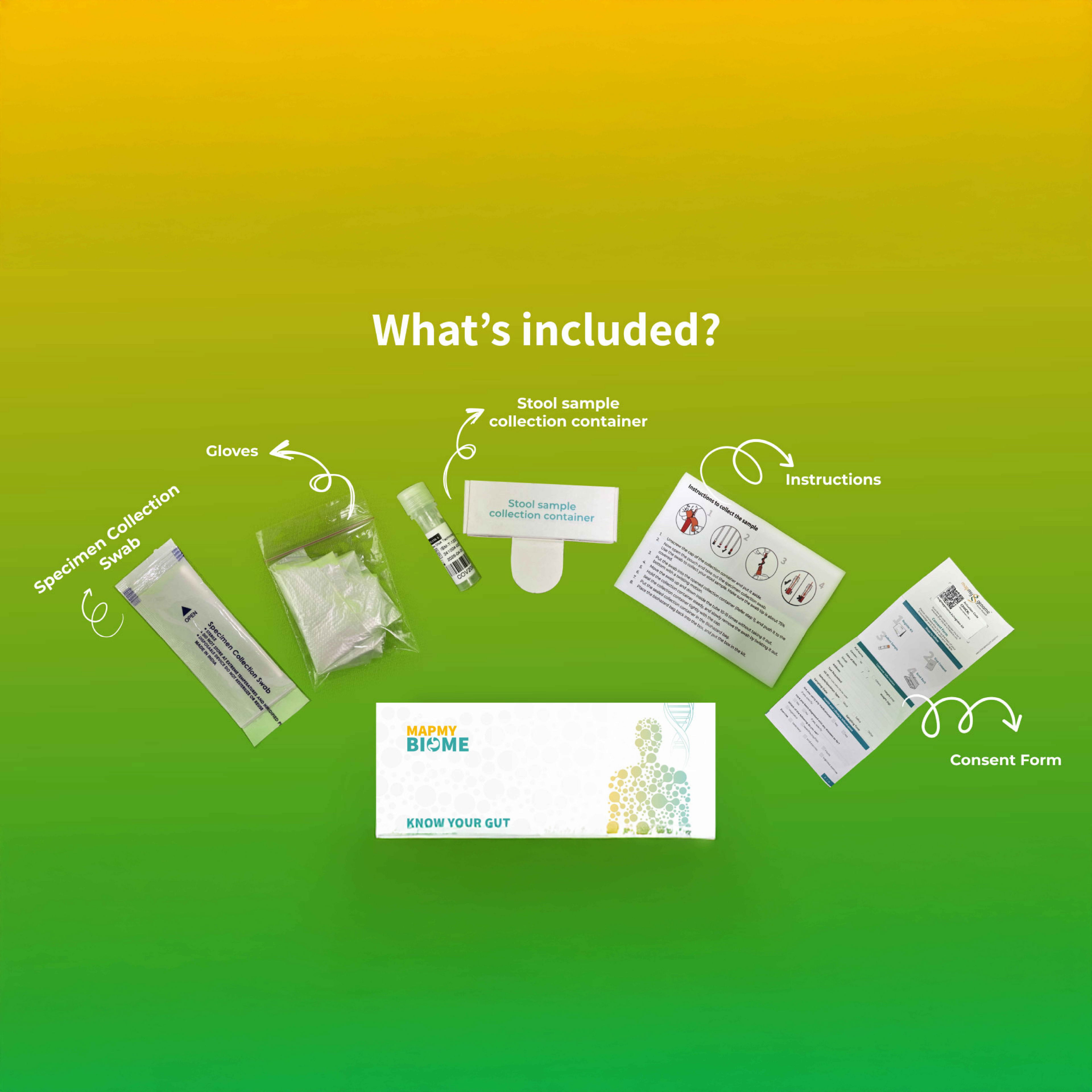Mental health disorders like depression and anxiety are prevalent worldwide, affecting millions of individuals and their families. While there are many contributing factors, from environmental triggers to lifestyle choices, genetics also plays a significant role in the onset of these conditions.
With advancements in science, genetic testing for mental health has emerged as a new tool for understanding how your genes may influence your susceptibility to mental health conditions like depression and anxiety. But how accurate is it? Can it really predict mental health issues, and should you consider taking a test? This blog explores the potential of genetic testing for mental health, its limitations, and how it might contribute to more personalized treatments.
The Connection Between Genetics and Mental Health
Mental health conditions are complex, often influenced by a combination of factors, including:
- Genetic predisposition
- Environmental stressors
- Personal experiences (e.g., trauma)
- Chemical imbalances in the brain
While we can't control our genetic makeup, it's becoming clear that understanding our genes can provide valuable insights into why some people may be more vulnerable to mental health disorders.
For instance, research suggests that depression and anxiety are heritable, meaning they can run in families. If one of your parents or siblings has suffered from depression or anxiety, you may be at a higher risk of developing these conditions yourself. Genetic testing can help identify certain genetic variations linked to mental health issues, potentially offering an early warning system.
How Does Genetic Testing for Mental Health Work?
Genetic testing involves analyzing a person’s DNA to identify specific genetic markers that could be linked to certain health conditions, including mental health disorders. The test typically involves:
- Sample Collection: A sample of saliva, blood, or cheek swab is collected and sent to a lab for analysis.
- DNA Analysis: In the lab, technicians look for specific genetic variants that have been associated with mental health conditions like depression, anxiety, or bipolar disorder.
- Interpretation: The results are then analyzed by a genetic counselor or healthcare provider, who can explain what the identified genetic markers mean and how they could influence your mental health.
Some genetic tests focus on specific genes linked to the body’s ability to process serotonin, a neurotransmitter closely tied to mood regulation. Other tests may focus on genes that affect how your body metabolizes certain psychiatric medications, such as SSRIs (Selective Serotonin Reuptake Inhibitors), which are commonly prescribed for depression and anxiety.
Can Genetic Testing Predict Depression and Anxiety?
While genetic testing can offer insights into your susceptibility to mental health conditions, it’s important to understand that genetics is only part of the story. Mental health disorders are influenced by both genetic and environmental factors, so while the test may indicate an increased risk, it cannot definitively predict whether you will develop depression or anxiety.
For example, if you carry a genetic variant associated with a higher likelihood of depression, you may not develop the condition unless other factors, such as chronic stress or a traumatic event, come into play. On the other hand, some people with no family history of mental health issues may still develop depression or anxiety due to life circumstances.
The Role of Pharmacogenomics in Treating Mental Health
One of the most promising applications of genetic testing for mental health is in pharmacogenomics. This branch of genetic testing helps identify how your body metabolizes certain medications, providing information that can be used to tailor treatments for mental health disorders.
For instance, many individuals with depression or anxiety struggle to find the right medication. SSRIs, SNRIs, and other types of antidepressants don’t work the same for everyone, and some people experience significant side effects. Pharmacogenomic testing can help:
- Identify medications that may be more effective for you based on your genetic makeup.
- Reduce trial-and-error: Rather than trying several medications before finding one that works, genetic testing can point your healthcare provider in the right direction.
- Minimize side effects: Certain genetic markers are linked to how your body processes drugs, allowing doctors to prescribe the right dosage from the start, minimizing adverse reactions.
Pharmacogenomics doesn't guarantee a perfect match for medication, but it can improve the likelihood of finding the right treatment faster.
Genetic Testing: Benefits for Mental Health
While genetic testing for mental health is not a diagnostic tool, it offers several potential benefits:
1. Personalized Treatment Plans
Mental health conditions vary greatly from person to person. Genetic testing can help healthcare providers develop more personalized treatment plans, particularly when it comes to prescribing medication. By understanding your genetic predisposition, doctors can recommend treatments that are more likely to work for you, increasing the chances of managing your symptoms effectively.
2. Insight into Family History
If you have a family history of depression or anxiety, genetic testing can provide insights into whether you carry certain genetic variants associated with these conditions. This knowledge can help you take preventive measures, such as adopting healthy coping mechanisms or seeking therapy before symptoms worsen.
3. Proactive Mental Health Management
For individuals who test positive for genetic markers linked to mental health disorders, the results can serve as a wake-up call to prioritize mental wellness. Early intervention strategies such as therapy, stress management techniques, and lifestyle changes can help reduce the likelihood of developing a full-blown disorder.
4. Guidance for Family Planning
If mental health issues run in your family and you're planning to have children, genetic testing can offer important information about the likelihood of passing on certain genetic variants. This can inform decisions about family planning and help parents prepare for the possibility of mental health issues in their children.
Limitations of Genetic Testing for Mental Health
Despite its potential, genetic testing for mental health has some limitations:
1. Not a Definitive PredictorAs mentioned earlier, genetic testing can indicate a higher risk, but it cannot definitively predict whether you will develop depression or anxiety. Mental health is influenced by multiple factors, including lifestyle, environment, and life experiences.
2. Cost and AccessibilityGenetic testing can be expensive, and not all tests are covered by insurance. The availability of genetic testing services can also vary depending on where you live.
3. Potential for MisinterpretationInterpreting genetic test results can be complicated, and there’s a risk of misinterpreting the results. It’s essential to consult with a genetic counselor or healthcare provider who can explain what the test results mean and how they should be used to guide your mental health care.
Should You Consider Genetic Testing for Mental Health?
If you have a family history of depression or anxiety, or if you're struggling to find the right medication for your mental health condition, genetic testing may be worth considering. It can provide valuable insights that help personalize your treatment and reduce the guesswork involved in finding the right therapy.
However, genetic testing is not for everyone. It's essential to have realistic expectations about what the test can and cannot tell you. While it can provide helpful information, it is not a crystal ball that will predict your mental health future. Mental health is influenced by many factors, and genetics is just one piece of the puzzle.
Final Thoughts
Genetic testing for mental health offers exciting possibilities for understanding the role of genetics in depression and anxiety. It can provide valuable insights into your genetic predisposition, help guide personalized treatment plans, and reduce the trial-and-error process in finding the right medication. While it’s not a definitive predictor, genetic testing can be a useful tool for those looking to take a proactive approach to their mental health.
If you're considering genetic testing for mental health, speak to a healthcare provider or genetic counselor to understand the best options for you. By combining genetic insights with mental health care, we can move toward a more personalized, effective approach to managing depression, anxiety, and other mental health conditions.















